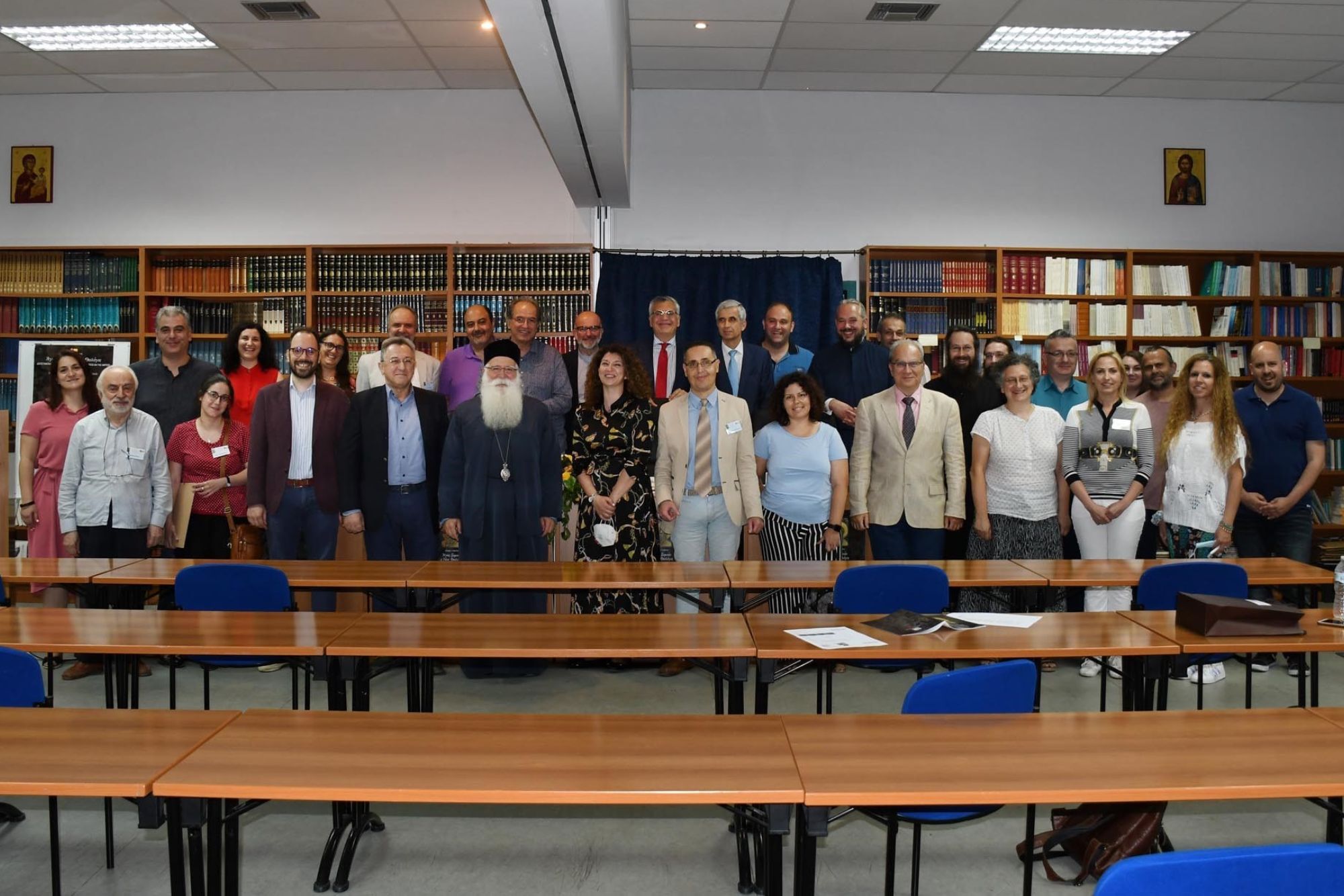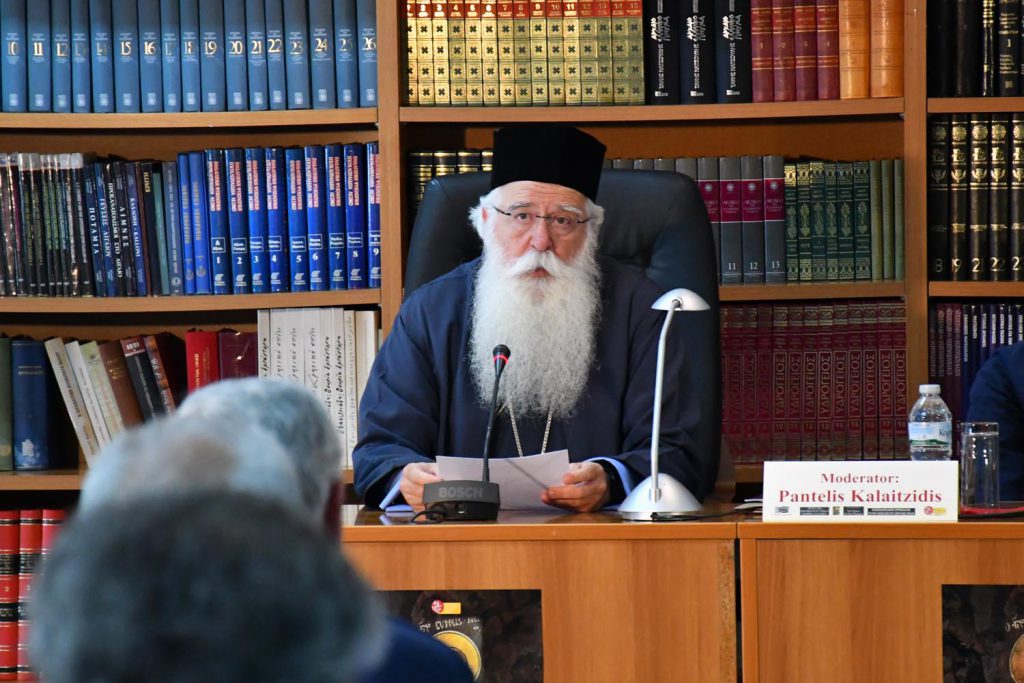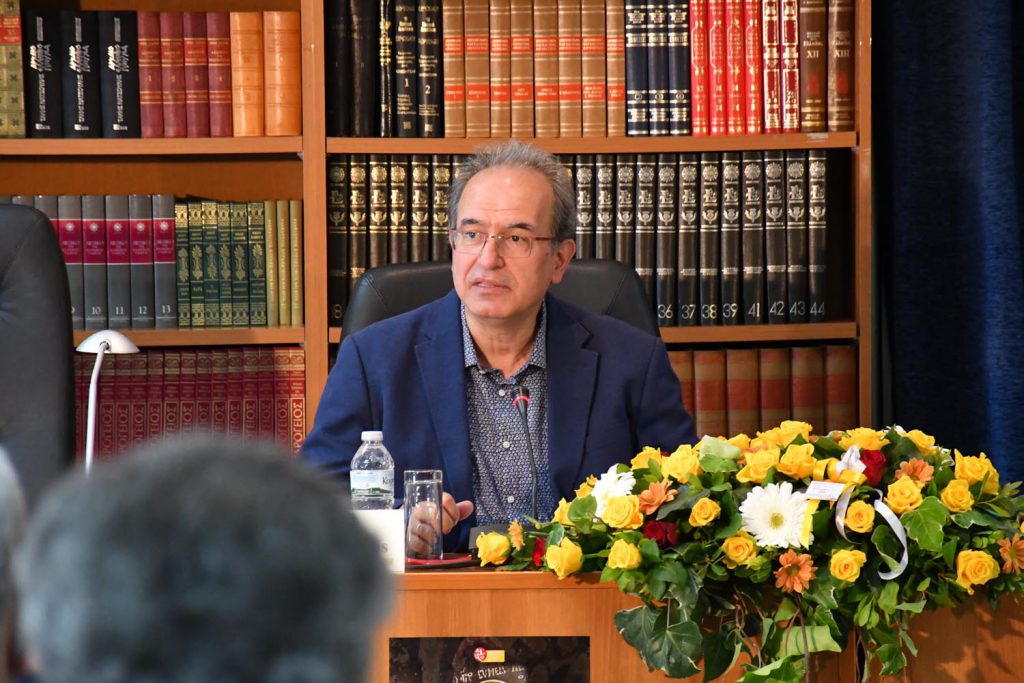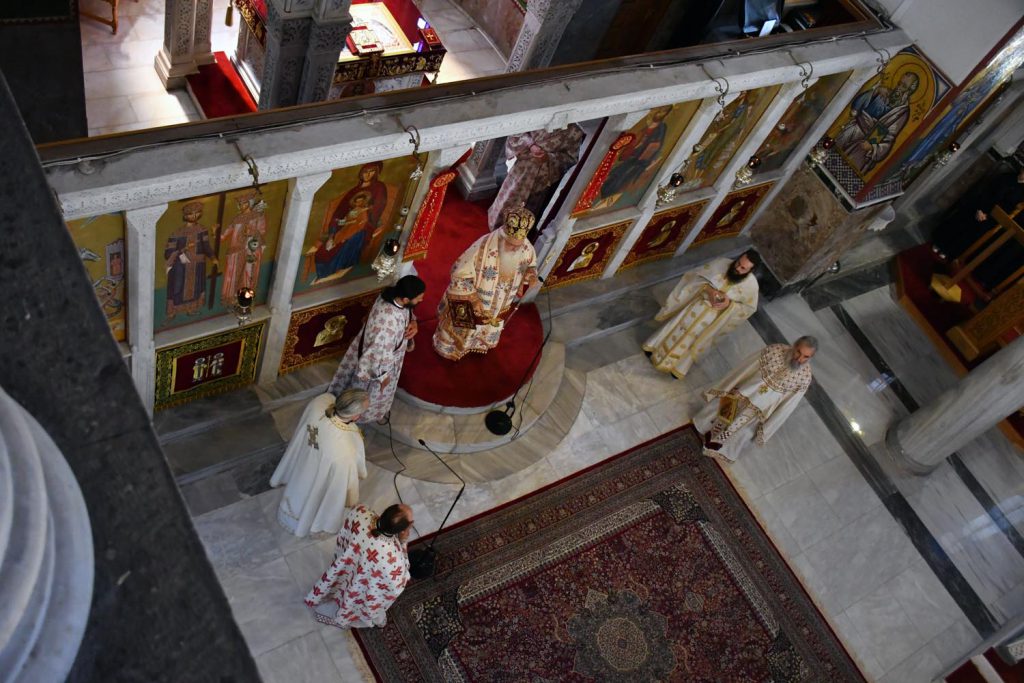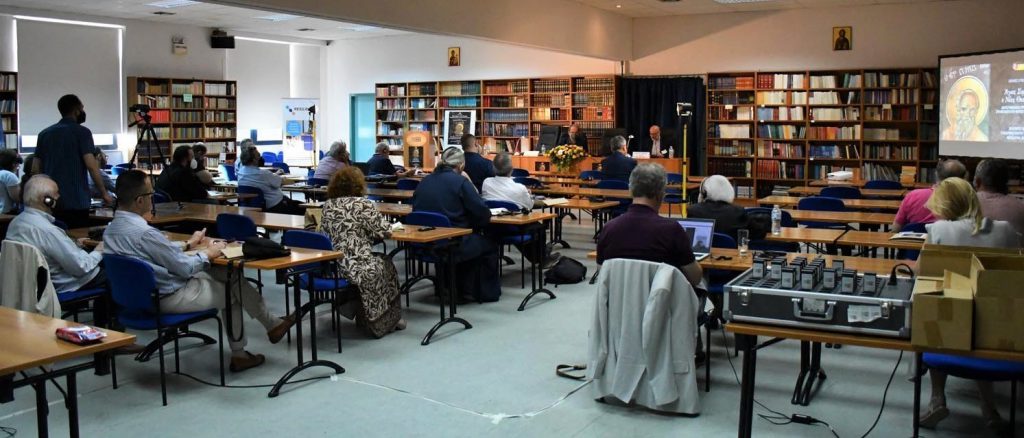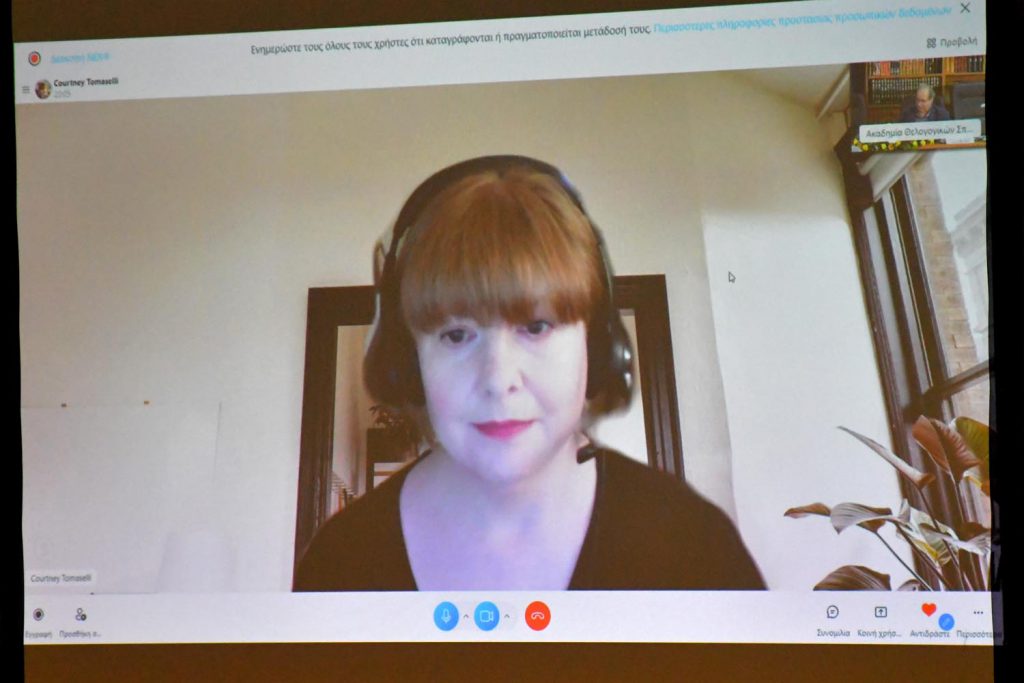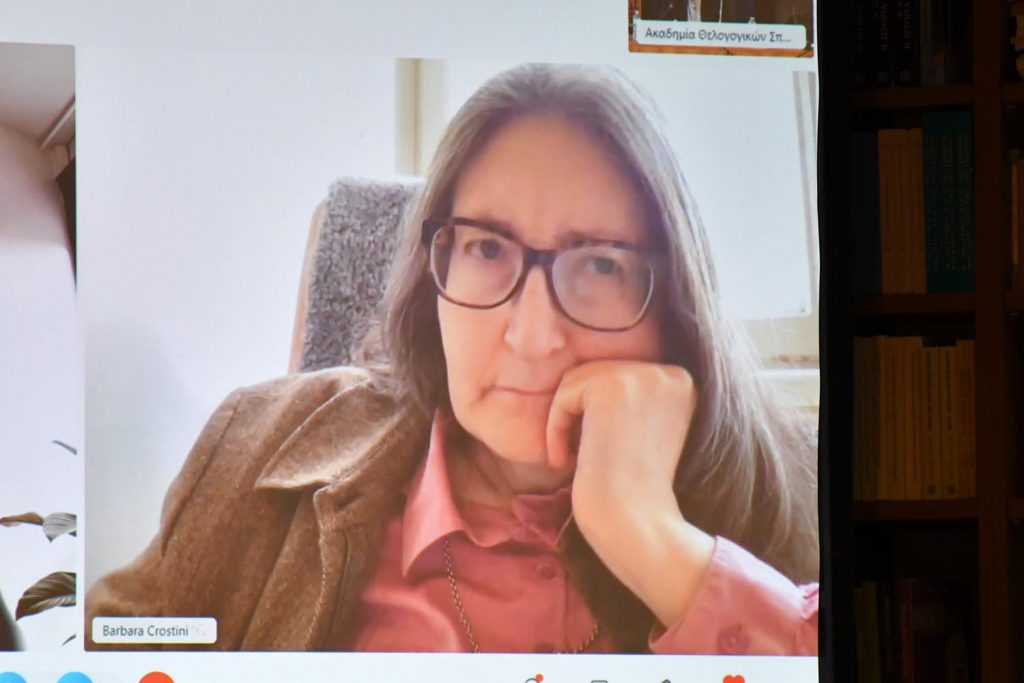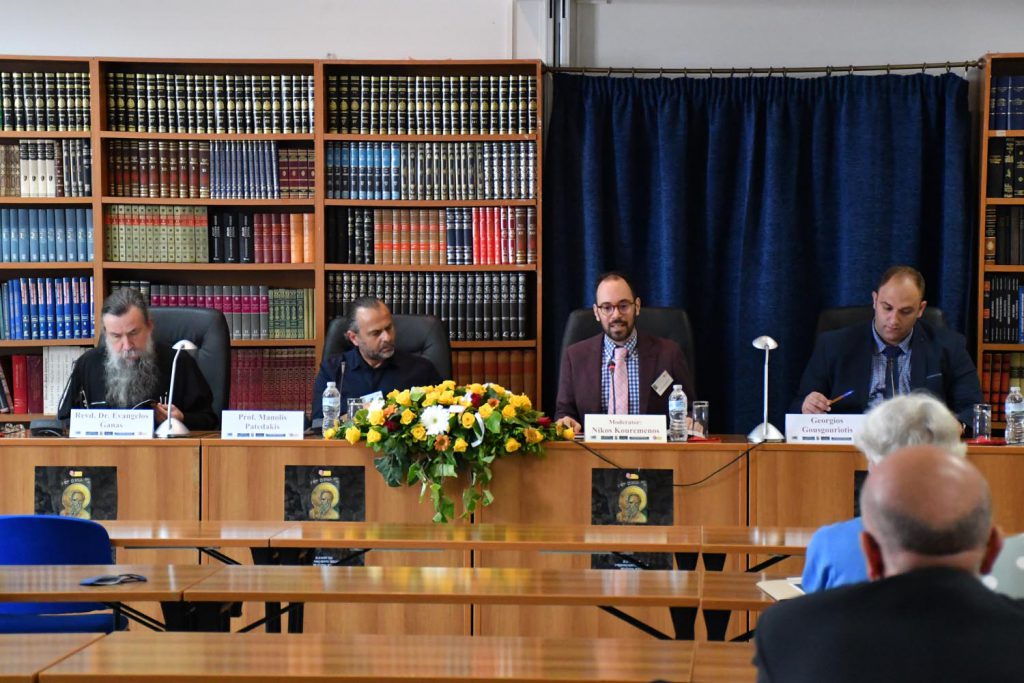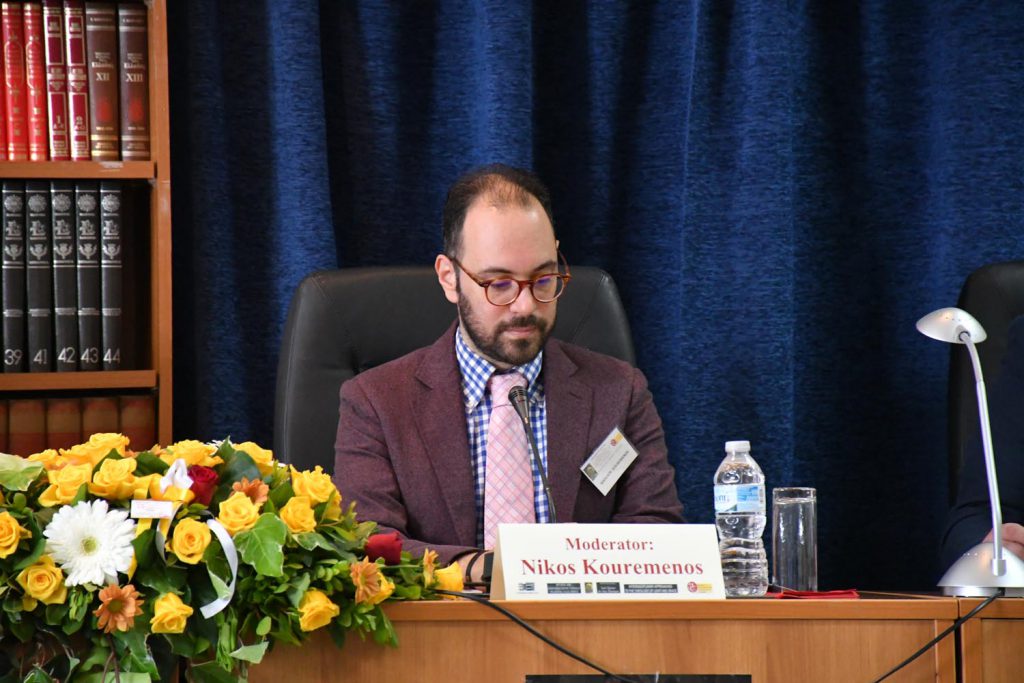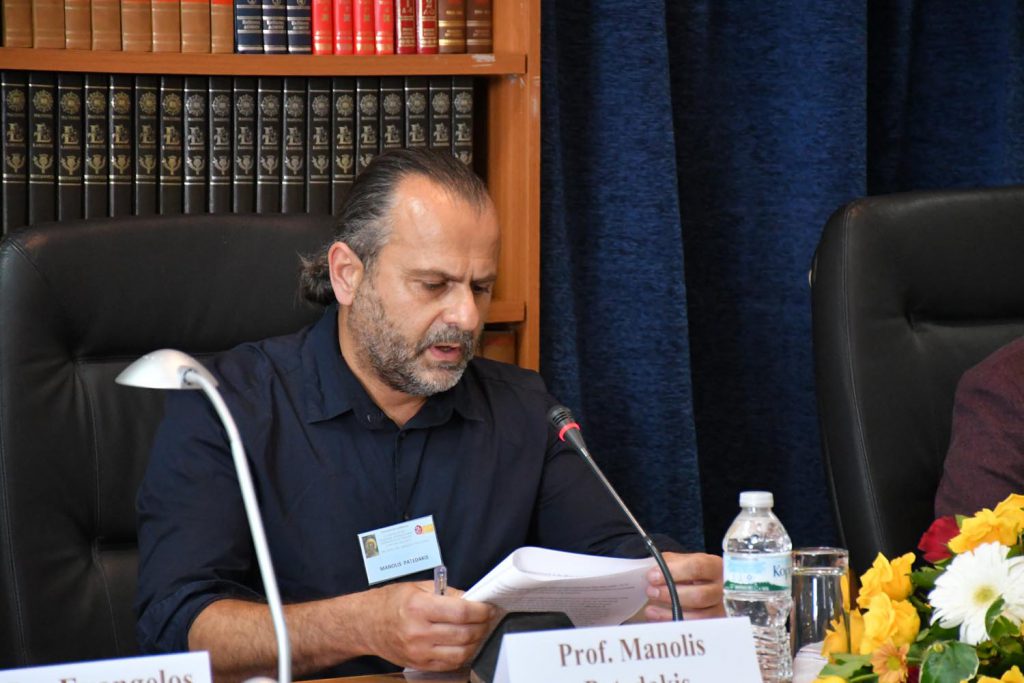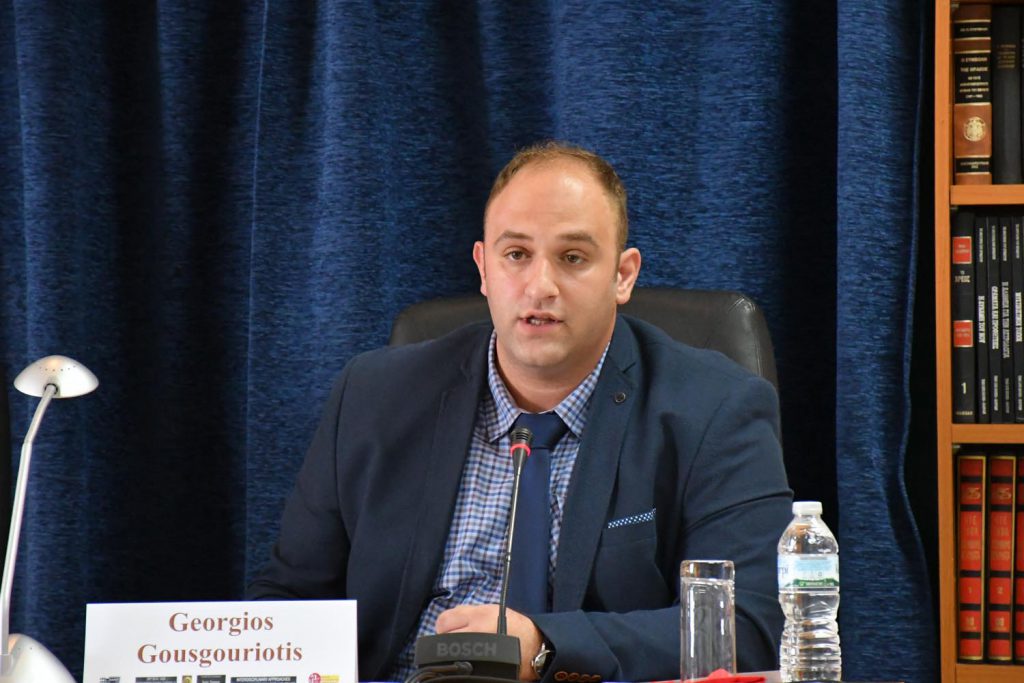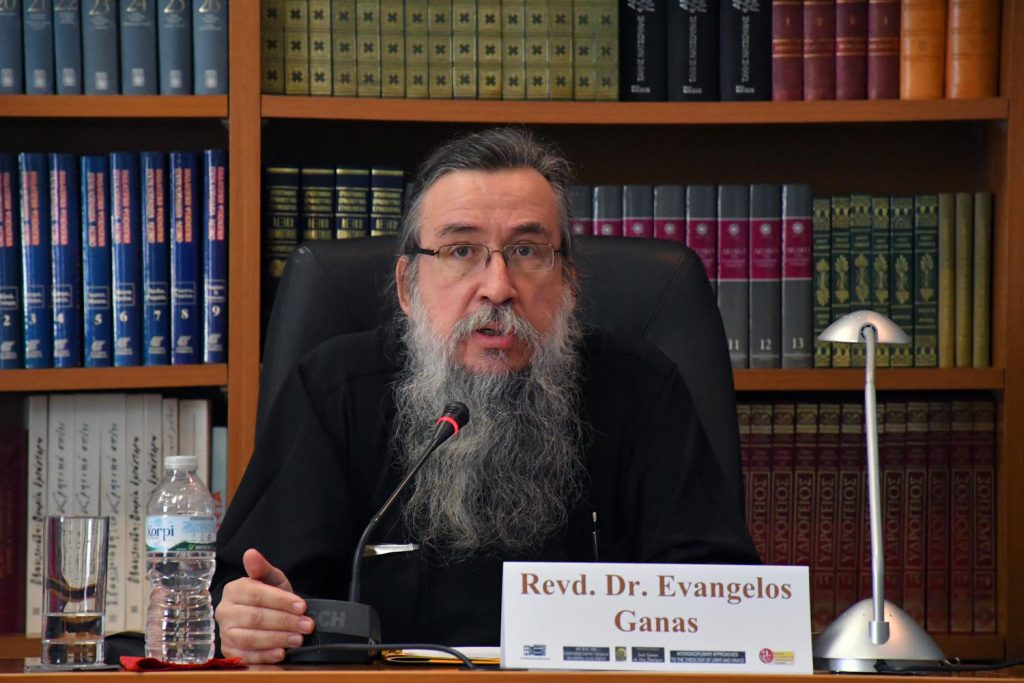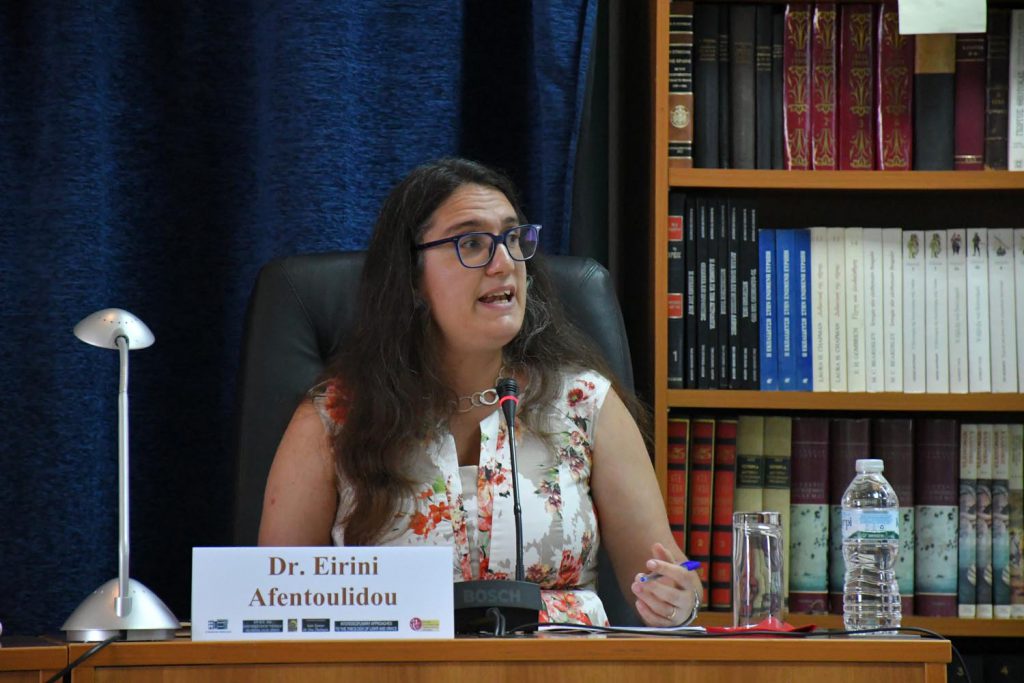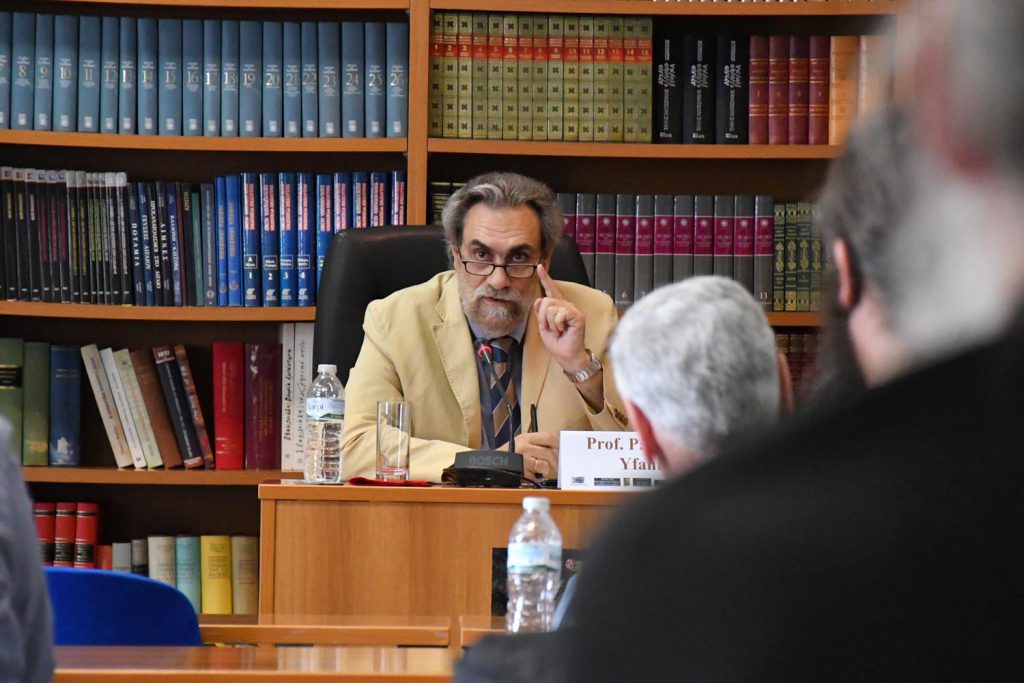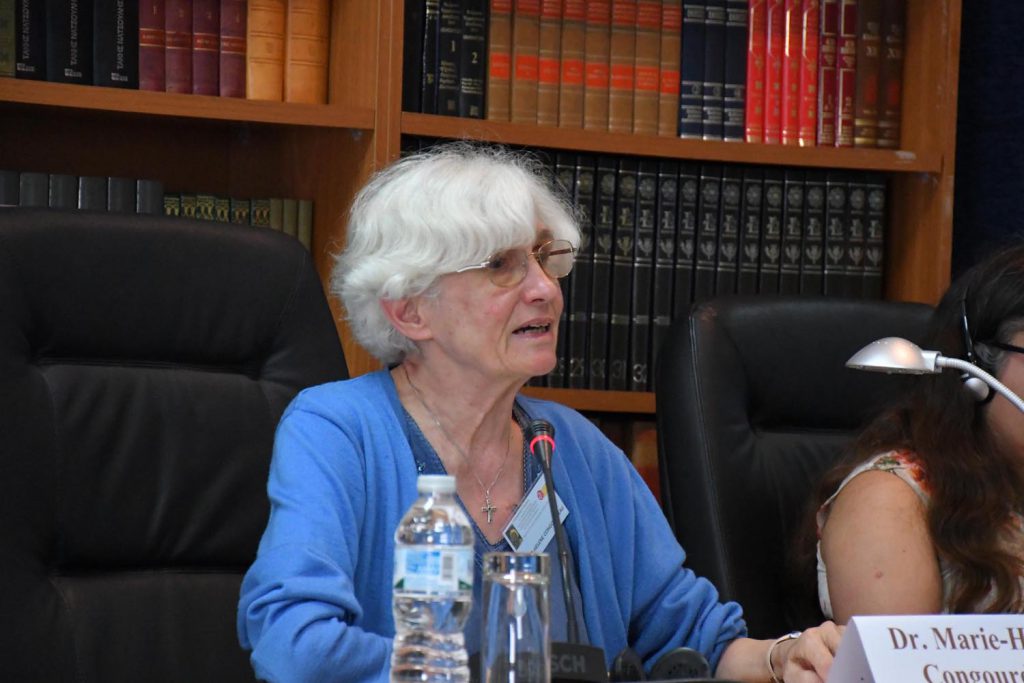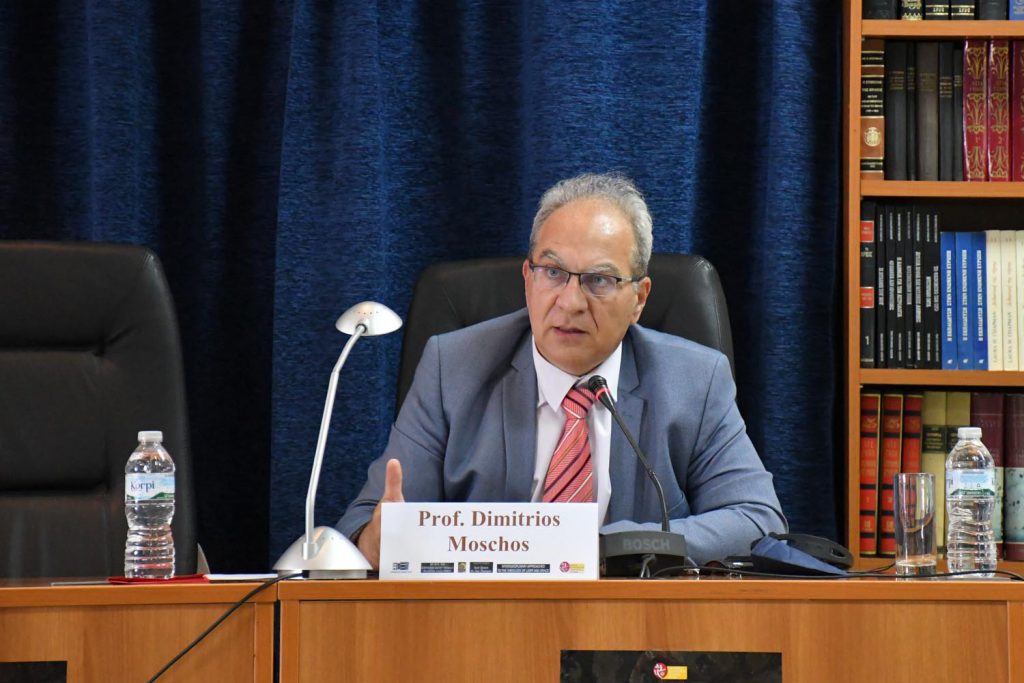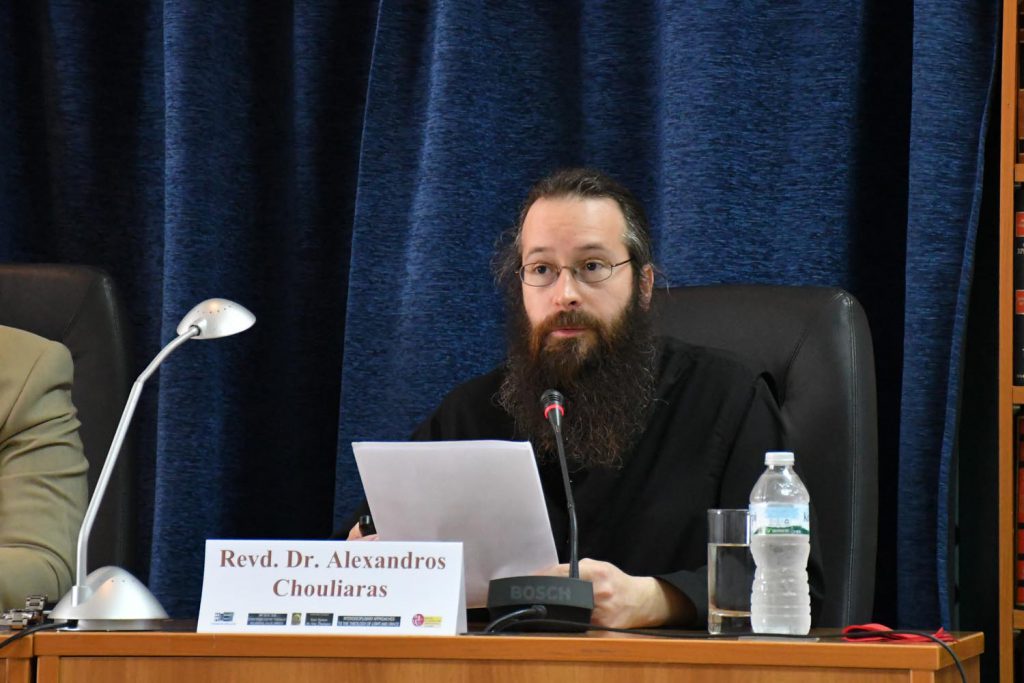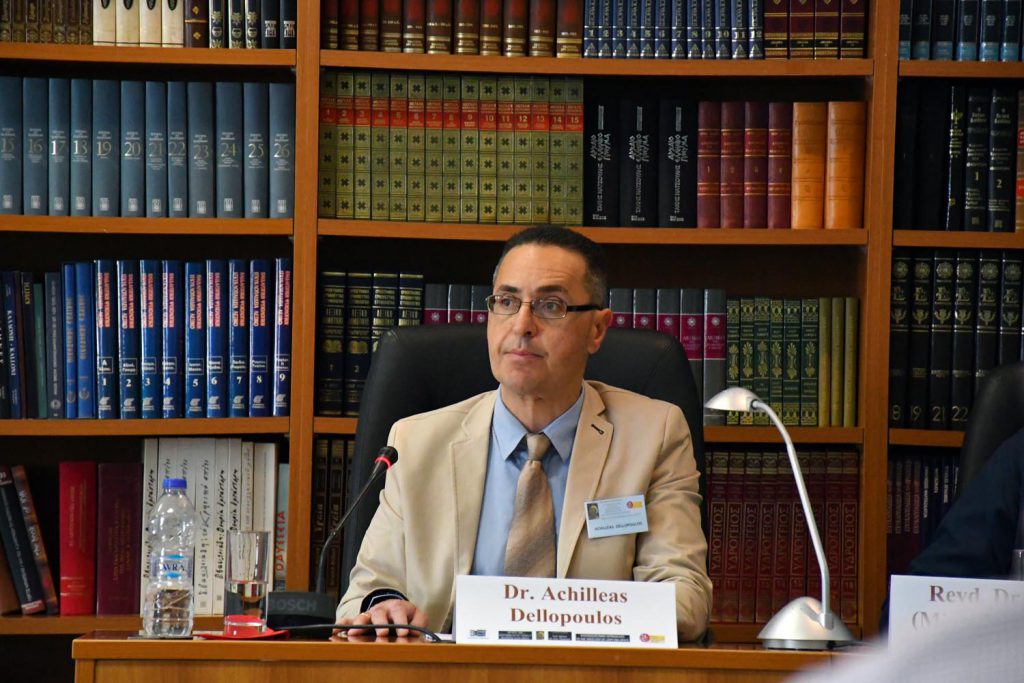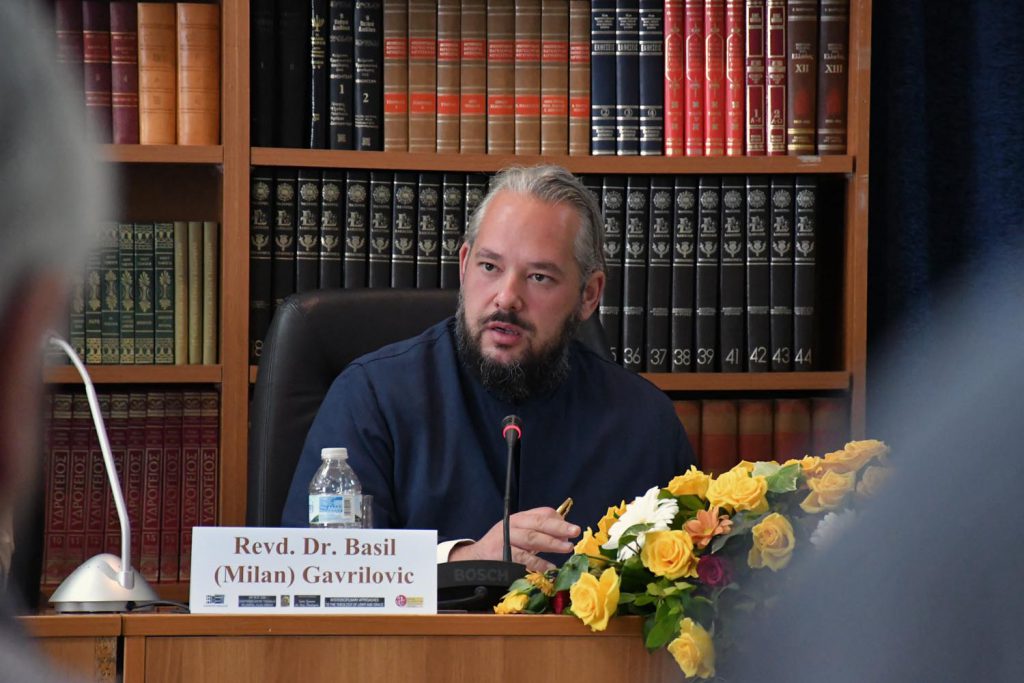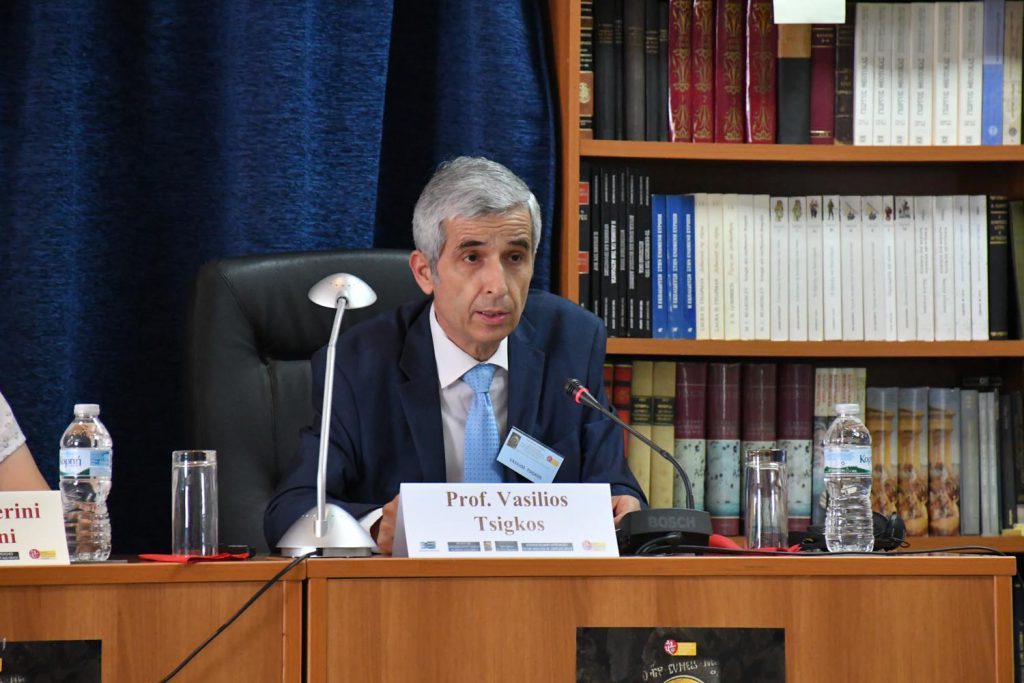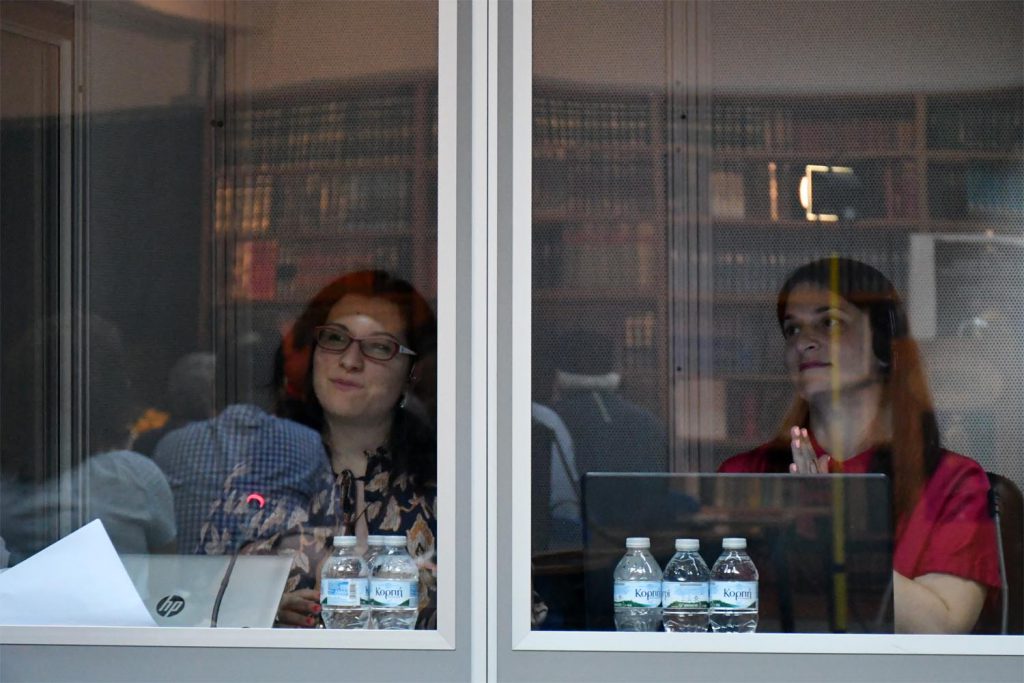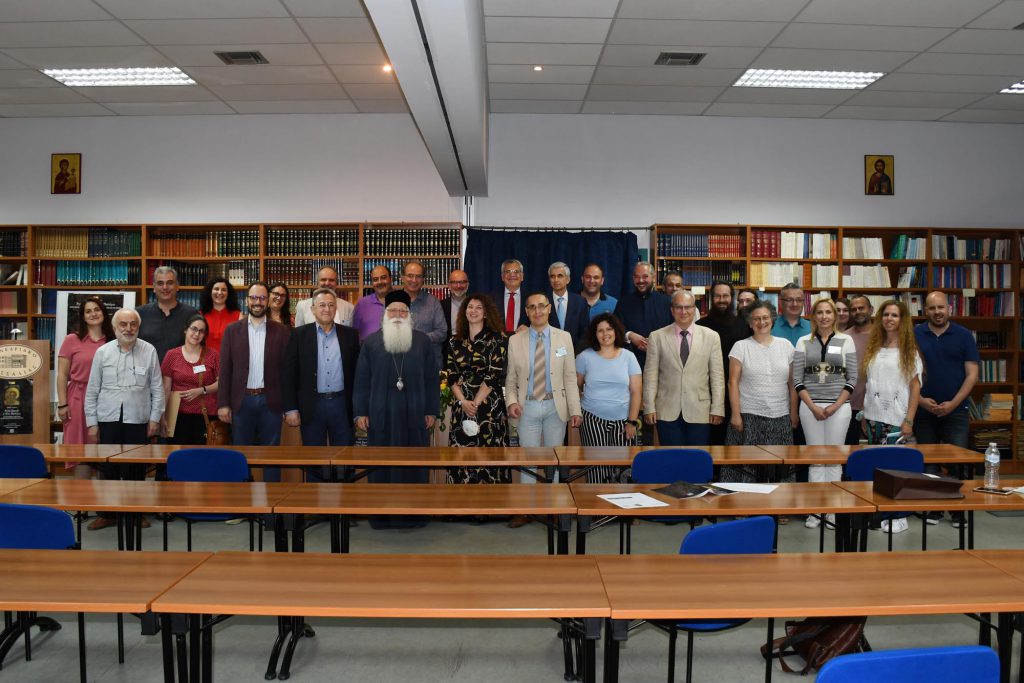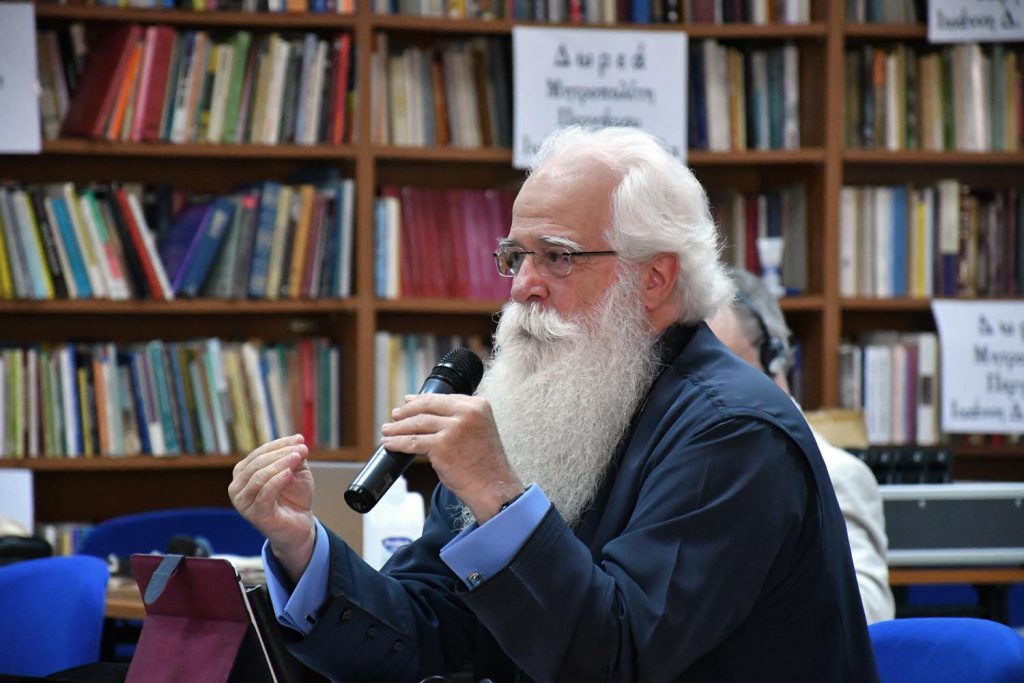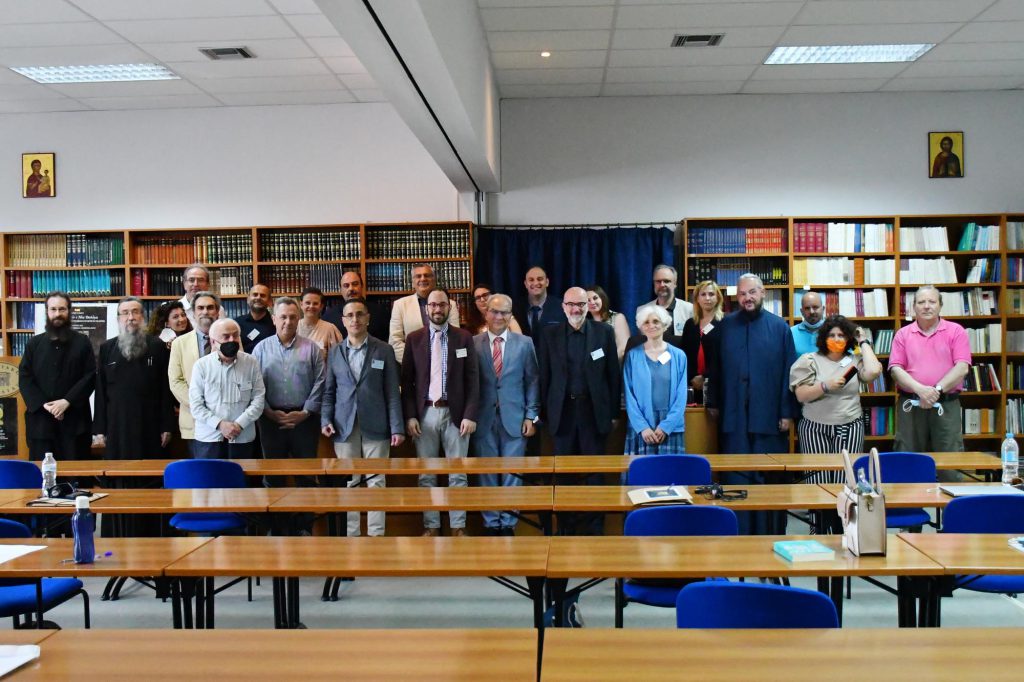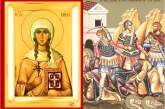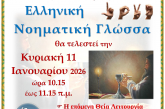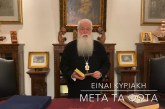Συνεδριακό Κέντρο «Θεσσαλία», Μελισσάτικα, Βόλος
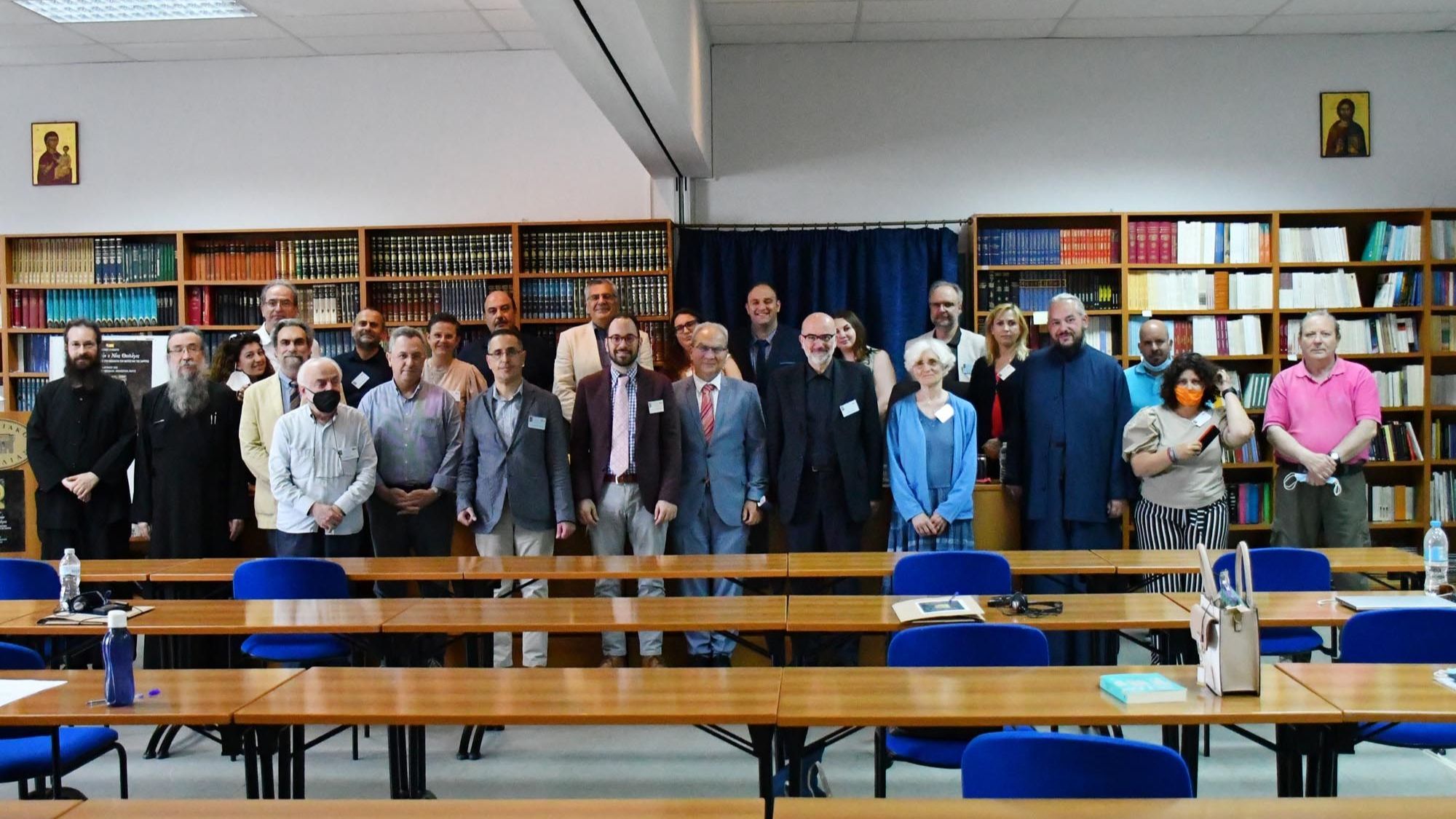
Μετά τους Χαιρετισμούς που απηύθυναν στο συνέδριο ο Σεβ. Μητροπολίτης Δημητριάδος κ. Ιγνάτιος και ο Διευθυντής της Ακαδημίας Θεολογικών Σπουδών Δρ. Παντελής Καλαϊτζίδης, ο οποίος και προήδρευσε της πρώτης συνεδρίας, με τη σειρά που πραγματοποιήθηκαν οι παρουσιάσεις, η Μπάρμπαρα Κροστίνι (Barbara Crostini, Λέκτορας Εκκλησιαστικής Ιστορίας, Ιστορίας της Τέχνης και Πολιτισμικών Σπουδών, Ινστιτούτο Νιούμαν, Ουψάλα) έθεσε το ερώτημα για τη σχέση του αγίου Συμεών με τη χριστιανική πνευματικότητα της Συρίας, εν όψει των σχέσεων που δημιουργήθηκαν μεταξύ Συρίας και Κωνσταντινούπολης, μετά τη νίκη του Βασιλείου Β΄ στο Χαλέπι (995). Ο ηγούμενος της μοναστικής αδελφότητας του Μπόζε, Σαμπίνο Κιαλά (Sabino Chialà), ανέλυσε την πιθανότητα να είχε διαβάσει ο Νέος Θεολόγος τον αββά Ισαάκ τον Σύρο, σε μια εποχή που τα κείμενα του τελευταίου είχαν μεταφραστεί και κυκλοφορούσαν ευρέως και στο περιβάλλον της Κωνσταντινούπολης. Η Κάρτνεϋ Τομαζέλλι (Courtney Tomaselli, Διδάσκουσα στο Πανεπιστήμιο Λογιόλα του Σικάγο) παρουσίασε με γλαφυρό τρόπο τις αντιλήψεις του αγίου περί πνευματικής πατρότητας και εξομολόγησης με αφορμή το Ψαλτήριο Vat.Gr.1927, ενώ ο Γεώργιος Γουσγουριώτης (Υπ. Δρ. Φιλολογίας, Ερευνητικός εταίρος στο Πατριαρχικό Ίδρυμα Πατερικών Μελετών) ασχολήθηκε με την πρόσληψη των έργων του Συμεών κατά τον 11ο-12ο αι., και ειδικότερα την περίπτωση του Βασιλείου Πρωτασηκρήτις.
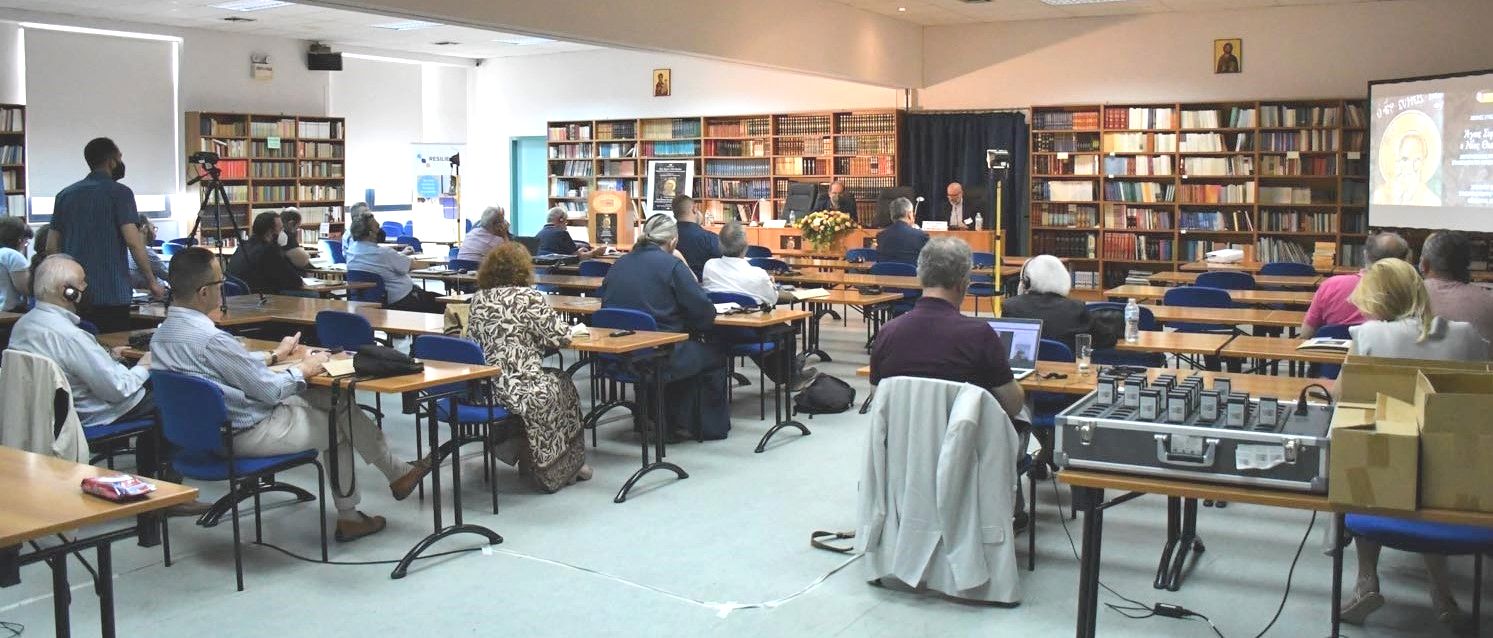
Τις τεχνικές του λόγου που χρησιμοποίησε ο Συμεών για να αποδώσει την εμπειρία της σχέσης με τον Θεό παρουσίασε ο Μανόλης Σ. Πατεδάκης (Επίκουρος Καθηγητής, Τμήμα Φιλολογίας, Πανεπιστήμιο Κρήτης), μέσα από μια αντιπροσωπευτική ανθολόγηση κειμένων του αγίου, ενώ ο π. Ευάγγελος Γκανάς (Εφημέριος Οσίου Μελετίου Σεπολίων, Ηλεκτρολόγος Μηχανικός ΕΜΠ και Θεολόγος) σκιαγράφησε την ταυτότητα της εμπειρίας του Συμεών και των Αποστόλων στην δεξίωση της αποκάλυψης του αναστημένου Χριστού. Την πρόσληψη των έργων του Συμεών στην χειρόγραφη παράδοση αλλά και το αναγνωστικό κοινό της εποχής ανέδειξε η Ειρήνη Αφεντουλίδου (Ερευνήτρια στο Ινστιτούτο Μεσαιωνικής Έρευνας της Αυστριακής Ακαδημίας Επιστημών, Βιέννη), κάτι που είναι άμεσα συνδεδεμένο με τη θέση του Συμεών στο αγιολογικό σχήμα της εποχής για το οποίο μίλησε ο Παναγιώτης Αρ. Υφαντής (Καθηγητής, Τμήμα Θεολογίας, ΑΠΘ), αναδεικνύοντας αμφισημίες και ερωτήματα που απασχολούν την έρευνα μέχρι τις μέρες μας.
Η Μαρί-Ελέν Κονγκουρντώ (Marie-Hélène Congourdeau, Ομότιμη Ερευνήτρια, Εθνικό Κέντρο Επιστημονικής Έρευνας, Παρίσι) παρουσίασε τον ρόλο του Νέου Θεολόγου στον αστικό μοναχισμό της εποχής, αποδίδοντας στον άγιο την πρωτοβουλία για την είσοδο της ατομικής και εσωτερικής προσευχής στην παράδοση του κοινοβίου. Ο Δημήτρης Μόσχος (Καθηγητής, Τμήμα Θεολογίας, ΕΚΠΑ) αφ’ ετέρου, συγκρίνοντας τη σχέση του Συμεών με τα αρχαία μοναστικά πρότυπα, προβληματίστηκε για τα ερωτήματα που κατά περιόδους θέτει το μοναστικό κίνημα, αναφορικά προς τα ιδεώδη του. Μια σύγκριση της εμπειρίας της θέωσης μεταξύ του Συμεών του Νέου Θεολόγου και του Γρηγορίου Παλαμά επιχείρησε ο π. Αλέξανδρος Χουλιαράς (Εντεταλμένος Διδάσκων, Τμήμα Κοινωνικής Θεολογίας και Θρησκειολογίας, ΕΚΠΑ), ενώ ο π. Βασίλειος Γκαβρίλοβιτς (Basil Gavrilovic, Υπ. Δρ. Θεολογίας) συνέκρινε τη σκέψη του Νέου Θεολόγου με τον Γρηγόριο Νύσσης, σε σχέση με τις αντιλήψεις τους για την ατέλεστη εσχατολογική προκοπή του ανθρώπου. Ο Αχιλλέας Δελλόπουλος (Δρ. Θεολογίας, Μεταδιδακτορικός Ερευνητής Τμήματος Θεολογίας ΕΚΠΑ) παρουσίασε τις «πνευματικές αισθήσεις» ως απαραίτητη προϋπόθεση της θέωσης αλλά και ως ενοποιό στοιχείο της ανθρωπολογίας. Την ολοποιητική και ανακεφαλαιωτική διάσταση της σκέψης του αγίου Συμεών ανέδειξε ο Βασίλειος Τσίγκος (Καθηγητής, Τμήμα Κοινωνικής Θεολογίας και Χριστιανικού Πολιτισμού, ΑΠΘ), ενώ η επισήμανση της διαλεκτικής ελευθερίας και αναγκαιότητας ως παράγοντα υπέρβασης μιας συμβατικής και θεσμοποιημένης άσκησης και πνευματικότητας από τον Δημήτρη Ουλή (Εντεταλμένο Διδάσκοντα, Τμήμα Κοινωνικής Θεολογίας και Θρησκειολογίας, ΕΚΠΑ), φανέρωσε τη δυναμική της συμεωνικής σκέψης.
Τον τρόπο χρήσης της Καινής Διαθήκης στο έργο του Συμεών ως συνδυασμό βιβλικής ερμηνείας και προφητικής μαρτυρίας ανέλυσε η Αικατερίνη Τσαλαμπούνη (Αναπλ. Καθηγήτρια, Τμήμα Κοινωνικής Θεολογίας και Χριστιανικού Πολιτισμού, ΑΠΘ), ενώ τις διαστάσεις και την ποικιλότητα της θεολογικής εκφραστικής αναφορικά με τη θέα του Θεού και τη θέωση μεταξύ Γρηγορίου Παλαμά και Συμεών Νέου Θεολόγου ανέλυσε ο Σταύρος Γιαγκάζογλου (Επίκουρος Καθηγητής, Τμήμα Θεολογίας, ΕΚΠΑ), επισημαίνοντας τόσο τις διαφορετικές εποχές και τις απαιτήσεις τους, όσο και τις διαφορές που προκύπτουν από τα προβλήματα που ο καθένας τους αντιμετώπιζε. Έναν γόνιμο προβληματισμό σχετικά με τον ρόλο του σώματος στη θέωση κατά τον Νέο Θεολόγο κόμισε ο Ίστβαν Περτσέλ (Istvan Perczel, Καθηγητής, Τμήμα Μεσαιωνικών Σπουδών, Πανεπιστήμιο Κεντρικής Ευρώπης, Βιέννη & Βουδαπέστη), συνδέοντας την προβληματική του ζητήματος με την ευαγριανή σκέψη και προβληματιζόμενος σχετικά με τον ρόλο του σώματος στη δεξίωση της θεοπτίας.
Τον ρόλο του Αγίου Πνεύματος στον μυστικισμό του Συμεών παρουσίασε ο Πάμπλο Αργκαράτε (Pablo Argárate, Καθηγητής, Τμήμα Θεολογίας, Πανεπιστήμιο Γκρατς), αναδεικνύοντας το ρόλο της πνευματολογίας ως δυναμική πρόσβαση στο γεγονός του Χριστού πιστώνοντας τον Νέο Θεολόγο με μια επιμονή στην Πνευματολογία που έγινε χαρακτηριστικό του ανατολικού χριστιανισμού. Την εσχατολογία του Νέου Θεολόγου σε σύγκριση με τον προβληματισμό της εσχατολογίας του 20ου αιώνα επιχείρησε ο Θεόφιλος Αμπατζίδης (Δρ. Θεολογίας, Ερευνητικός Εταίρος, Ακαδημία Θεολογικών Σπουδών Βόλου), ως αρραβώνα και πρόγευση της Βασιλείας από αυτή εδώ τη ζωή, χωρίς όμως την απεμπόληση της προσμονής των εσχάτων ως ολοκλήρωση της παρούσας εμπειρίας, ενώ ο Πωλ Γαβριλιούκ (Paul Gavrilyuk, Καθηγητής, Πανεπιστήμιο Αγίου Θωμά, Μινεσότα, Πρόεδρος της Διεθνούς Ορθόδοξης Θεολογικής Ένωσης ΙΟΤΑ, Πρόεδρος του οργανισμού «Ανοικοδόμηση της Ουκρανίας») ανέλυσε τη σχέση της ενσάρκωσης με τις πνευματικές αισθήσεις, διερευνώντας πώς ο Συμεών συνδέει τη σάρκα με τα αισθήματα και τον νου στην περιγραφή των εμπειριών του.
H βιντεοσκόπηση του Συνεδρίου βρίσκεται στο κανάλι της Ακαδημίας Θεολογικών Σπουδών στο YouTube,
Περισσότερες φωτογραφίες μπορείτε να δείτε εδώ.
Το επόμενο συνέδριο που διοργανώνει η Ακαδημία έχει τον τίτλο
«Ορθόδοξες επινοήσεις της Ανατολής» και
θα πραγματοποιηθεί από τις 16 ως τις 19 Ιουνίου 2022,
και πάλι στο Συνεδριακό Κέντρο «Θεσσαλία» στα Μελισσάτικα Βολου.
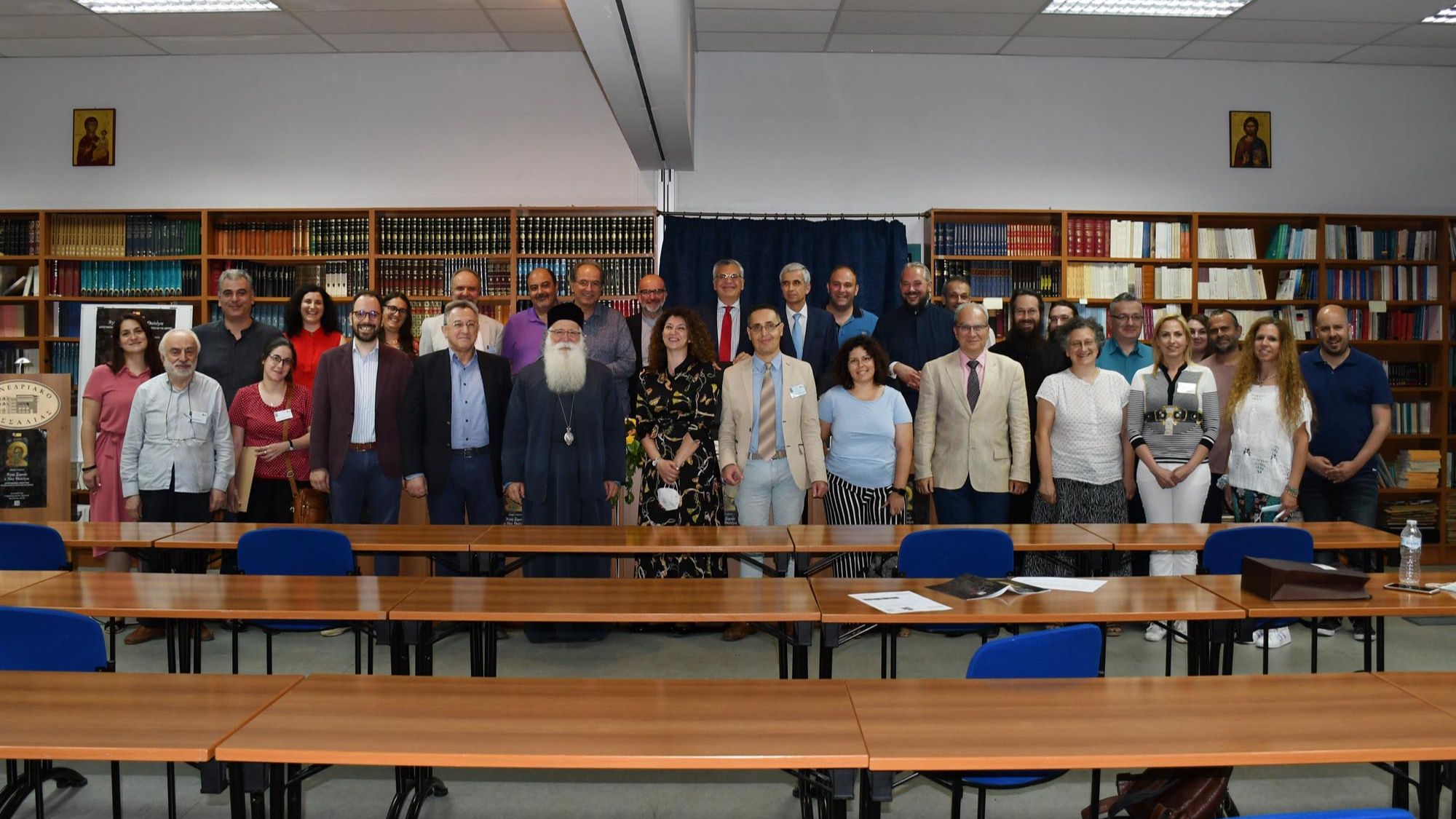
SAINT SYMEON THE NEW THEOLOGIAN: Interdisciplinary Approaches to the Theology of the Light and Grace
May 26-29, 2022,
Thessalia Conference Center, Melissatika, Volos – Greece
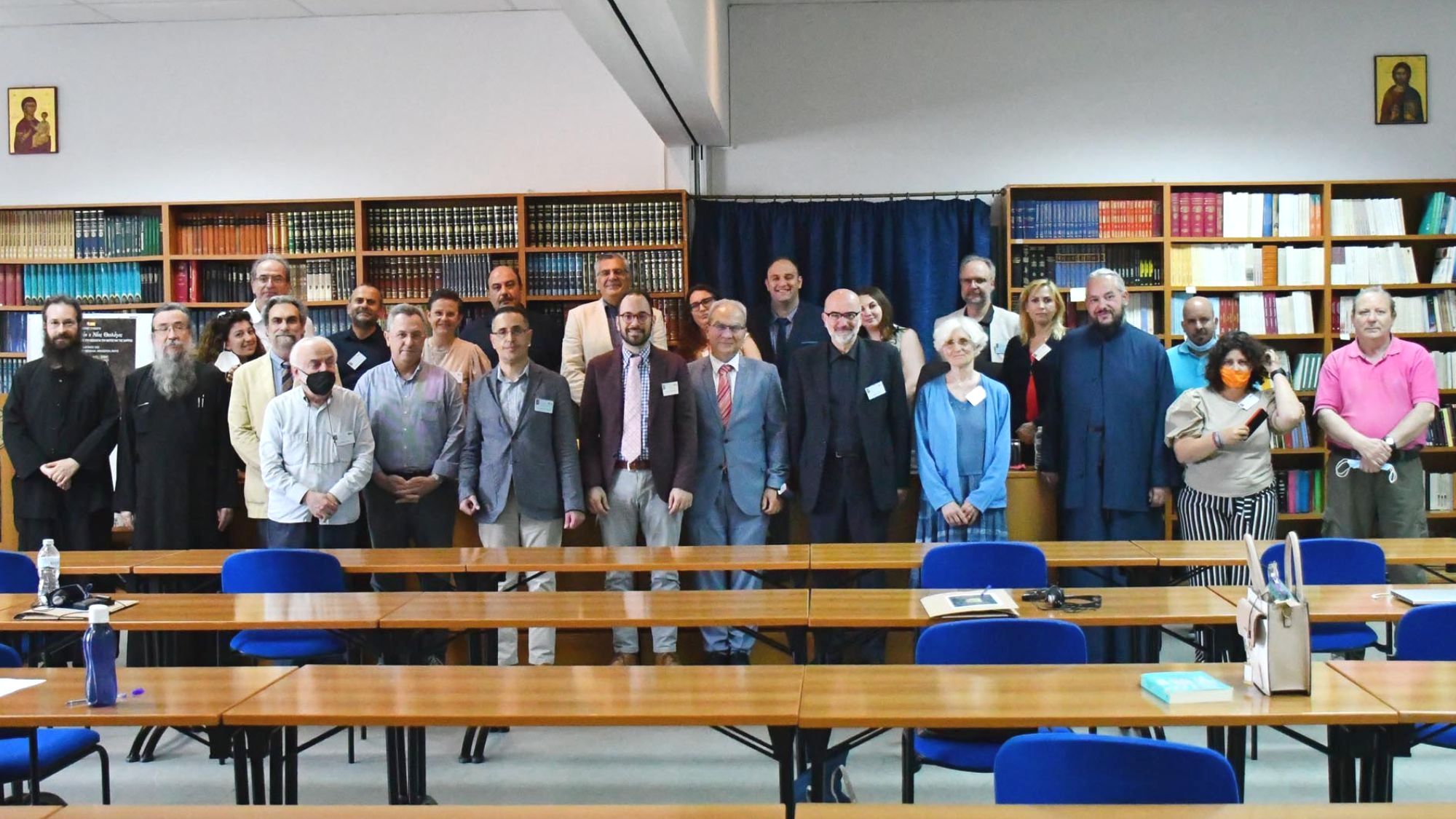
After the Greetings addressed to the conference by the His Eminence Ignatius, Metropolitan of Demetrias, and the Director of the Volos Academy for Theological Studies, Dr. Pantelis Kalaitzidis, who also chaired the first session, the first speaker, Barbara Crostini (Adjunct Professor in Byzantine Greek, Department of Linguistics and Philology, Uppsala University) spoke on the topic “St Symeon the New Theologian and Syria: Exploring Christian Experiences at the Turn of the Millennium” where she raised the question of the relationship of Saint Symeon with the Christian spirituality of Syria, in view of the relations established between Syria and Constantinople, after the victory of Basil II in Aleppo (995). Sabino Chialà (Prior at the Monastic Community of Bose, Italy) in his talk “Had Symeon the New Theologian read Isaac the Syrian?” analyzed the possibility that the New Theologian had read Abba Isaac the Syrian, at a time when the latter’s texts had been translated and circulated widely in Constantinople. Courtney Tomaselli (Instructor, Loyola University, Chicago) with her talk on ‘To Such Men authority to bind and loose is given by God…:’ St Symeon the New Theologian on Confession in the Psalter.Vat.gr.1927” presented in a brilliant way the saint’s perceptions of spiritual fatherhood and confession on the occasion of the Psalm Vat. Gr.1927.
Georgios Gousgouriotis (PhD ABD, Research Associate at the Patriarchal Institute of Patristic Studies, Thessaloniki): presented the topic “The reception of Symeon the New Theologianʼs work during the 11th-12th centuries: the case of Vassileios protasekretisʼ poems” where he dealt with the reception of the works of Symeon during the 11th-12th century, and in particular the case of Basil the Protasekretis. Manolis Patedakis (Associate Professor in Byzantine Philology, University of Crete) with his talk “The ‘recreation’ (anaplasis) of images about God in Symeon the New Theologian” presented the techniques of speech that Symeon used to convey the experience of the relationship with God, while Revd. Evangelos Gkanas (Priest, parish of Saint Meletios of Sepolia, Electrical Engineer, Licentiate in Theology) with his topic “St Symeon the New Theologian as a witness of the Resurrection of Jesus Christ” outlined the identity of the experience of Symeon and the Apostles in the reception of the revelation of the risen Christ. The reception of Symeon’s works in the manuscript tradition and the readership of the time highlighted by Eirini Afentoulidou (Research Associate, Institute of Medieval Research, Austrian Academy of Sciences, Vienna) in her presentation titled: “Reception of Symeon the New Theologian in the manuscript tradition: Editors, copyists, readers,” something that is directly related to the position of Symeon in the hagiological figure of the time about which Panayiotis Yfantis (Professor in Patristic thought and Hagiology, School of Theology, University of Thessaloniki) spoke about in his talk “St Symeon the New Theologian in the hagiographical pattern of Eastern Orthodox Tradition,” highlighting ambiguities and questions that occupy research to this day.
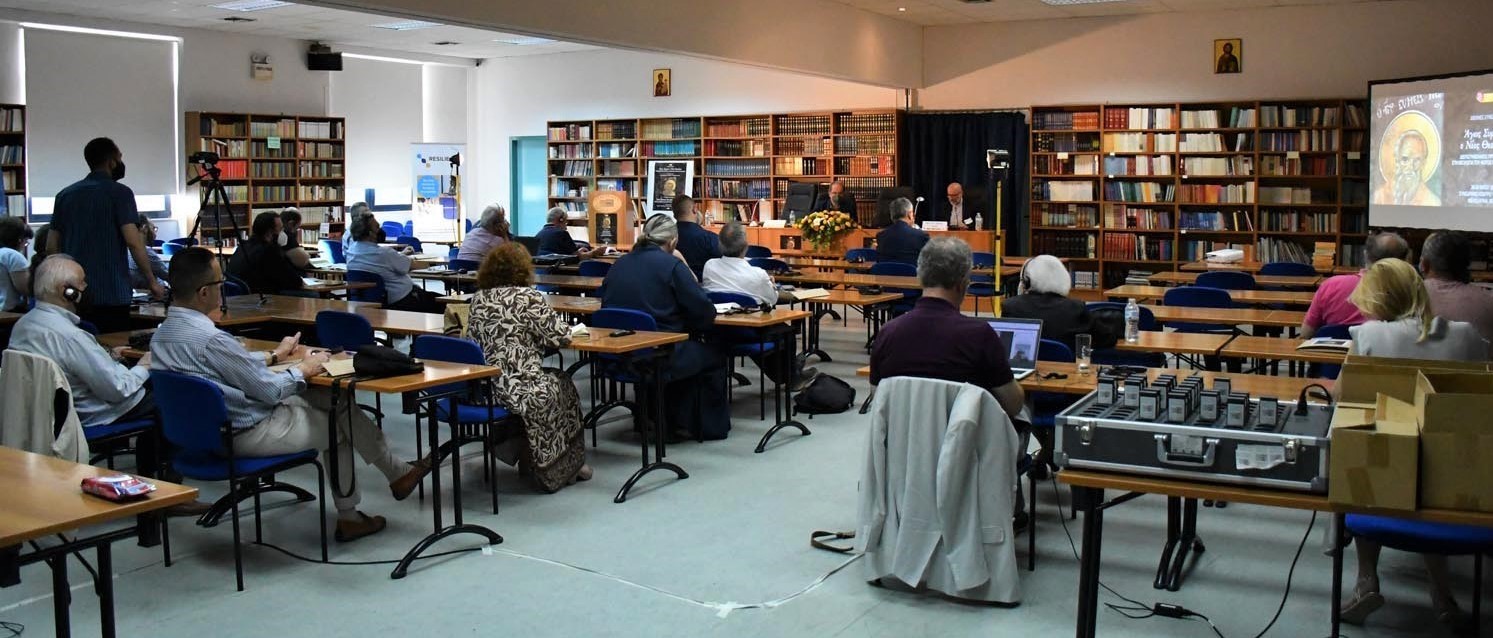
Revd. Alexandros Chouliaras (Adjunct Lecturer of Patristics, Anthropology, and Spirituality, National and Kapodistrian University of Athens) spoke on the topic “St Symeon the New Theologian and St Gregory Palamas on the Experience of God: Implications for Contemporary Christian Life” presented a comparison of the experience of deification between Symeon the New Theologian and Gregory Palamas. Revd. Basil Gavrilovic (PhD ABD) with his “Eschatological condition according to Gregory of Nyssa and Symeon the New Theologian: A critical analysis of “ἐπέκτασις” and “ἀτέλεστον τέλος,” compared the thought of the New Theologian with Gregory of Nyssa, in relation to their perceptions of the imperfect eschatological progress of human being. Achilleas Dellopoulos (Post-Doctoral Researcher, University of Athens) spoke on “The ascesis of human senses as a presupposition of deification in the anthropology of St Symeon the New Theologian,” where he presented the “spiritual senses” as a necessary condition of deification but also as a unifying element of anthropology, while Vasilios Tsigkos (Professor in Dogmatics, School of Theology, University of Thessaloniki) with his talk on “The theology of the ‘whole’ man in St Symeon the New Theologian and modern theology” highlighted the holistic and recapitulative dimension of the thought of Saint Symeon. In his talk under the title “The Dialectics of Freedom and Necessity in St Symeon the New Theologian” Dimitrios Oulis (Adjunct Lecturer in New Religious Movements, School of Theology, University of Athens) focused on the emphasis on dialectical freedom and necessity as a factor in transcending a conventional and institutionalized practice and spirituality, a reality revealing the dynamics of Symeon’s thought.
Ekaterini Tsalampouni (Associate Professor in New Testament, School of Theology, University of Thessaloniki) in her talk “The use of New Testament in the writings of St Symeon the New Theologian” spoke on the use of the New Testament in Symeon’s work as a combination of biblical interpretation and prophetic testimony, while Stavros Yangazoglou (Associate Professor in Dogmatics, School of Theology, University of Athens), with his “Was St Symeon a forerunner of Hesychasm? The vision of God according to St Symeon and St Gregory Palamas” presented the dimensions and the diversity of the theological expression regarding the view of God and the deification between Gregory Palamas and Symeon the New Theologian, noting both the different times and the relative challenges, as well as the differences that arise from the problems that each of them faced. Istvan Perczel (Professor in Philosophy and Byzantine History, Department of Medieval Studies, Central European University, Budapest) in his talk “The role of the body in the vision of God according to St Symeon the New Theologian” developed a fruitful reflection on the role of the body in deification according to the New Theologian, connecting the problematic of the issue with the thought of Evagrius Ponticus and thinking about the role of the body in the reception of the divine vision.
Pablo Argárate (Professor in Patristics and Eastern Orthodox Theology, Karl-Franzens-Universität Graz) in his talk “Τhe Holy Spirit in St Symeon the New Theologian” presented the role of the Holy Spirit in the mysticism of Symeon, highlighting the role of pneumatology as a dynamic approach to the event of Christ by crediting the New Theologian with an insistence on Pneumatology that became characteristic of Eastern Christianity. Theophilos Abatzidis (Research Associate, Volos Academy) with his talk “Life in Christ as a foretaste of the society of the eschaton. Remarks on the eschatological references of Symeon the New Theologian,” presented the eschatology of the New Theologian in comparison with the reflection of the eschatology of the 20th century, as an engagement and a foretaste of the Kingdom from this life here, but without dispelling the anticipation of the end as a completion of the present experience. Paul Gavrilyuk (Professor, St Thomas University, Minnesota, President of IOTA) spoke on “Embodiment and Spiritual Perception in St Symeon the New Theologian,” where he analyzed the relationship of incarnation to the spiritual senses, exploring how Symeon connects the flesh with the senses and the mind in describing his experiences.
The video recording of the Conference has already been posted on the Volos Academy’s YouTube channel
More photos are here
The next conference organized by the Volos Academy, entitled
“Orthodox Constructions of the East”,
will be held from June 16 to 19, 2022,
again at the Thessalia Conference Center, Melissatika, Volos, Greece.
